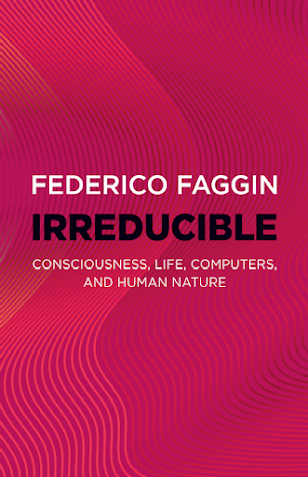Review: Irreducible Consciousness: Life, Computers, and Human Nature by Federico Faggin
In Irreducible Consciousness: Life, Computers, and Human Nature, Federico Faggin, a trailblazer in computing technology and the inventor of the first microprocessor, steps away from his technical legacy to venture into deeply philosophical territory: the nature of consciousness. This book challenges the dominant mechanistic view in science and raises fundamental questions about the role of consciousness in human experience, questioning its potential replication in advanced machines or artificial intelligence.
A bridge between science and philosophy
One of the highlights of Irreducible Consciousness is Faggin’s ability to weave together his vast technical expertise with philosophical inquiry. From the outset, the author makes clear his skepticism toward the idea that human consciousness can be reduced to mere algorithms or computational processes. Faggin positions himself in opposition to figures like Ray Kurzweil and other transhumanists who predict a future "fusion" of humans and machines.
Faggin argues that consciousness cannot be explained simply by equations or computational models. In fact, he contends that consciousness is irreducible to the physical and mathematical principles governing computation. Here, the author demonstrates a profound understanding of technology's limits but also a sensitivity to philosophical questions often overlooked by technologists. However, the philosophical exploration, while engaging, often feels more intuitive than rigorously grounded in contemporary philosophy of mind debates.
Science, personal experience, and spirituality
Faggin interlaces his personal experiences with spirituality, which can be both a strength and a weakness depending on the reader. His own awakening to the nature of consciousness, which he describes as a spiritual revelation, might feel subjective to those with more empirical inclinations. This spiritual approach leads him to adopt a dualistic view, where mind and body are not reducible to one another a perspective traditionally debated in philosophy, from Descartes to contemporary discussions.
While the book invites deep reflection on the nature of reality, the blend of science, spirituality, and personal anecdotes might be disorienting for readers expecting a more systematic and academic treatment. Faggin’s observations on the “self” and subjective experience are compelling in narrative terms but may lack the rigor expected in a more structured philosophical discussion.
A critique of reductionism
At the heart of the book is its critique of scientific reductionism. Faggin argues that traditional science has failed to adequately address the problem of consciousness due to its materialistic and mechanistic approach. Instead, he suggests that consciousness is a fundamental phenomenon, not derived from matter but coexisting with it in a way that science has yet to understand. This argument aligns Faggin with other contemporary thinkers who also call for a paradigm shift in understanding the mind, such as David Chalmers and his famous "hard problem of consciousness."
While Faggin does not provide a comprehensive solution or a detailed alternative framework, his call for post-materialist science is a timely reminder that our understanding of the human mind remains incomplete. However, his approach lacks the technical depth and detailed analysis of current developments in neuroscience and philosophy of mind that could have strengthened his argument.
Final reflections
Federico Faggin offers in Irreducible Consciousness a bold and provocative perspective that challenges some of the most deeply ingrained beliefs about the human mind and its relationship to technology. His interdisciplinary approach, fusing science, philosophy, and spirituality, invites readers to question the boundaries of current knowledge and consider that consciousness, in its essence, may be more than a mere emergent property of complex physical systems.
However, for readers seeking a rigorous academic work or a detailed exposition of well-founded alternative theories, the book may be lacking in certain respects. While his reflections are inspiring, they do not form a solid theoretical structure capable of standing in contemporary philosophy of mind.
Irreducible Consciousness is ultimately a book for those seeking an accessible and personal discussion of the great mysteries of consciousness, rather than for those interested in a thorough or empirical analysis. Its value lies in its capacity to generate new questions rather than providing definitive answers. As such, it may open an important space for reflection among technologists and philosophers alike, though its academic contribution remains modest.
You can purchase this book at:https://amzn.to/4eqv4TK





No comments:
Post a Comment